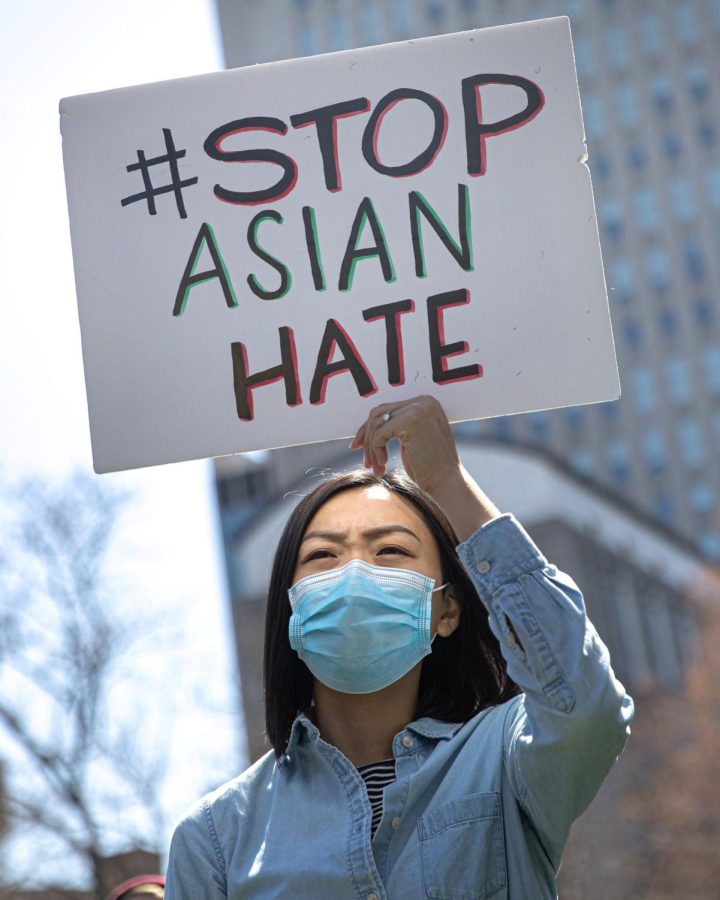NJ Requires Schools Teach Asian American History
February 18, 2022
New Jersey Governor Phil Murphy signed a law requiring that public schools include the history of Asian Americans and Pacific Islanders in their curriculum starting in the 2022-2023 school year. New Jersey is the second state, after Illinois, to legally mandate the teaching of AAPI history. In 2020 due to Covid-19 and other related issues, there was a surge in anti-Asian violence. For example, the infamous shooting last year near Atlanta that left six Asian women dead. This only highlights the already pre-existing societal biases people have against the Asian community.
There’s also the tendency for Asian Americans to avoid reporting hate crimes in general. A survey by AAPI data shows that Asian Americans and Pacific Islanders were the least likely to report hate incidents compared to other groups. And when it is reported, it largely falls to individual law enforcement agencies to translate their data to the federal level.
America clearly lacks a well-rounded, diverse viewpoint of history. Students would like to see their history represented in history classes, especially because Asian American students make up about a quarter of the student population in the U.S. Eunice Chi, the president of the Asian Affinity club: a club that serves to empower and advocate for the Asian population at Wayne Hills High School, expresses her feelings, “I remember feeling very uneasy at the time. That’s largely why I started Asian Affinity along with a couple of my friends; I wanted to create a safe space. Also growing up I was never taught about my own history and I often felt it was invalidated. On the other hand, it is important to educate students about other races than their own.”
Juliana Lee, a senior at Hills, expresses similar views, “As a Korean American and growing up as a minority in America, we tend to assimilate into American society and start to disassociate with our culture. It was in middle school when I hated my Korean herritage the most and I think this is due to the fact that I never learned about it in school. Representation is so important and when you’re in an environment 5 days a week and are not able to see your herritage being represented and learned about, you start to feel like an alien and all you want to do is fit in. However, as I matured, I realized how great my culture is and how cool it is to be from Korea. Personally, I would like to learn more about my history but also share my culture with others and overall make our students equipped with a more diversified education and perspectives.”
Make Us Visible NJ: the coalition of students, parents, educators, legislators, and community members led the efforts to get this bill passed. They spent many months advocating for this bill by meeting with school boards and teacher unions.
Sabreen Sarwar, the President of the Empowerment Club: a club at Wayne Hills that serves to empower, uplift, and defy pre-existing stereotypes. Describes what the club did during the rise of anti-Asian hate crimes, “In April 2021, we held a discussion meeting that focused on empowering the Asian community. The officers and I felt that it was an important topic to shed light on at the time as the Asian community was (and still is) being blamed for spreading and “creating” Covid-19. We opened up the meeting by talking about current events that included hate crimes and violence against Asian Americans. We also discussed the history of Asian American hate, the Model Minority Myth, and some important Asian American activists like Yuri Kochiyama and Grace Lee Boggs. We also provided ways our members can empower and support the community which includes giving back through charities, supporting Asian-owned businesses, and just simply being respectful and spreading awareness on these social issues. Our members were fully engaged and we got to hear amazing insight from them as well.”





